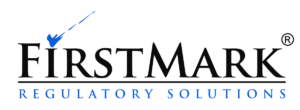AML Indpendent Testing
FINRA Rule 3310
AML Test Requirements
Bank Secrecy Act
Office of Foreign Assets Control
FINRA Rule 3310
Bank Secrecy Act
Office of Foreign Assets Control
The question often arises, “how frequently must I have an AML independent test?” And believe it or not, what seems like a simple answer can get slightly complicated.
The Bank Secrecy Act and the implementing regulations thereunder are promulgated by the Department of the Treasury. FINRA Rule 3310 requires that each FINRA member develop a written anti-money laundering program that is, “reasonably designed to achieve and monitor the member’s compliance” with BSA requirements. The BSA includes the following regulations for broker-dealers:
All broker-dealers operating in the United States are subject to the requirements of OFAC which is an office of the U.S. Department of the Treasury. Broker-dealers must develop procedures that are adequate to:
FINRA has published this guide for its members in preparing for an AML examination during routine cycle examinations. The guide is quite useful.
In conducting AML independent testing, FirstMark assesses a client’s compliance with the AML recordkeeping requirements and provides feedback and recommendations as needed. FINRA has published a comparison of the AML records requirements with the SEC books and records requirements.
FINRA requires that AML independent testing be completed by a person who is competent in the area of AML. Beyond what the rule requires, an AML test conducted by an experienced professional can be of significant benefit to the client. A strong AML compliance program helps to prevent and detect those who desire to use your firm to facilitate potentially illicit activity.

FINRA Rule 3310 (the FINRA AML Rule) specifies that all broker-dealers registered with FINRA must:
Often, broker-dealer compliance staff ask FirstMark when their AML independent testing must be completed. The FINRA rule simply provides that each member “provide for” an AML test once each calendar year, or if the firm is a proprietary trading firm or only deals with other broker-dealers, once every other calendar year. The phrase “provide for” is used because the firm may either utilize internal personnel to conduct the test or contract with an outside provider for the test. If the former, FINRA is specific in the supplementary material to the rule – 3310.01(c) – as to who within the firm may not conduct the test. Principally, individuals who are conflicted may not be involved in the test.
In many cases, FirstMark is contracted to conduct an AML independent testing because the firm desires to have an outside opinion as to its AML compliance program. FirstMark brings the perspective of its founder, Mitch Atkins, who was oversaw the creation of FINRA’s National AML Investigative Unit in 2012 and numerous high profile FINRA AML cases. Atkins understands what FINRA expects of its member’s AML programs. Remaining current in the AML space requires vigilance and constant networking with others in the AML compliance field. Atkins maintains numerous networking relationships which help him bring the most current knowledge to your AML independent testing engagement.
